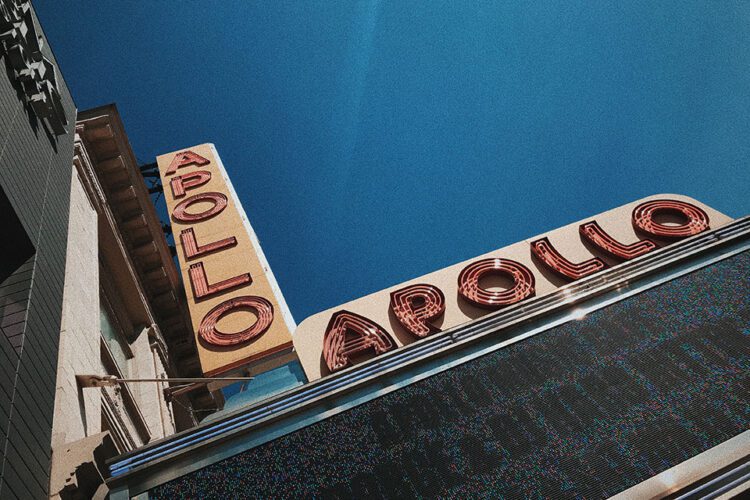Last year, concerns were already being raised as regulators prepared for the rollout. The 125th Street Business District Management Association, a notable Harlem business coalition, lodged a lawsuit on Wednesday against New York’s cannabis regulators. The suit challenges the state’s plan to open a recreational marijuana dispensary along the neighborhood’s central thoroughfare.
The legal action, submitted in the State Supreme Court of Manhattan, claims that the shop would exacerbate existing public health issues the area is already grappling with. The proposed dispensary location, also known as Martin Luther King Jr. Boulevard, is situated near the Apollo Theater, a homeless youth facility, and an office handling suspended students.
The suit, which aims to prevent the dispensary from opening, also reveals that the property’s landlord is leasing space to an unlicensed dispensary on Lenox Avenue, which has been linked to recent homicides, shootings, and illegal drug transactions.
The business association, representing 154 businesses, maintains that it does not oppose cannabis legalization but is concerned that the planned dispensary would pose a public health risk due to the “well-documented spillover effects of cannabis dispensaries that include violent crime, property crimes, pedestrian congestion, and cannabis marketing.”
Barbara Askins, the group’s leader, criticized the state’s approach, informing the New York Times this week that the community is already facing numerous challenges and limited resources. The lawsuit names the Dormitory Authority of the State of New York, the New York Office of Cannabis Management, its executive director, and 246 West LLC as defendants.
In reaction to the lawsuit, Jeffrey Gordon, a DASNY representative, said the agency only evaluates the proposed location and not the other tenants of the property owner. However, industry experts consider the situation a significant problem and a potential conflict of interest.
The 125th Street group’s lawsuit suggests that the state could have avoided the issue by better explaining its decisions and addressing local concerns. It also accuses state officials of violating their own rules, as the proposed site is less than 500 feet from schools and community centers.
This is the latest challenge for New York’s attempts to create a regulated, legal marijuana market, which has been hindered by the rise of hundreds of unlicensed shops selling both local and counterfeit cannabis in large quantities.
Appeals to the Governor The decision to sue highlights the growing dissatisfaction among communities who feel excluded from the program’s planning process. Various local officials, including a state assembly member and the community board’s district manager, expressed surprise this week at the site’s plans. However, the 125th Street group had already raised concerns as regulators were organizing the rollout.
In 2022, officials declared that a Harlem location would become the state’s first licensed retail dispensary. But due to local protests, the approval process was postponed, and the first dispensary opened in Greenwich Village instead.
In a December letter to Governor Kathy Hochul, the association opposed the proposed shop, citing concerns that it could contribute to higher crime rates in the neighborhood. The group urged Hochul to reconsider the site’s approval after state officials revealed plans for the shop the week before the letter, announcing that the lease for the one-story storefront opposite the famous theater had been signed.
The December complaint argued that the presence of a marijuana retail store would undermine a multi-agency task force’s efforts, established by NYC Mayor Eric Adams, to enhance public safety in the area. Additionally, it suggested that the dispensary could attract drug dealers currently selling illegal drugs in the vicinity and potentially increase minor crime and sanitation problems.
“This dispensary will not only derail the progress that we have made, it will also set us back in several areas,” Askins wrote in the letter to the governor at the time.
Askins also stated that she was not aware of any studies linking the presence of marijuana shops to a rise in crime in other states where the drug has been legalized for recreational use. However, she speculated that dealers already selling illegal drugs along the 125th Street corridor could potentially congregate outside the dispensary and approach customers as potential buyers.
Daniel Blumenstein, the attorney representing the association, informed the NYT that the group had a meeting with Stacy Lynch, the governor’s top aide, in March. However, authorities neither provided an explanation for their choice nor shared any details about future plans.
“We were stonewalled,” he said.
According to NYPD statistics, crime rates slightly increased in 2022 in the Central Harlem precinct, which encompasses the proposed dispensary site and much of the 125th Street corridor, with burglaries and larcenies leading the categories.
While the impact of legal marijuana on crime rates is still being researched in other states, a 2019 study from CUNY’s John Jay College indicated that streets near cannabis dispensaries in Denver experienced “significantly higher” levels of property crime.
Nonetheless, proponents of marijuana legalization argue that such businesses can benefit neighborhoods by creating job opportunities and generating tax revenue.
UNRELATED NEWS: Exploring the Link Between Cannabis Use and Mental Health









